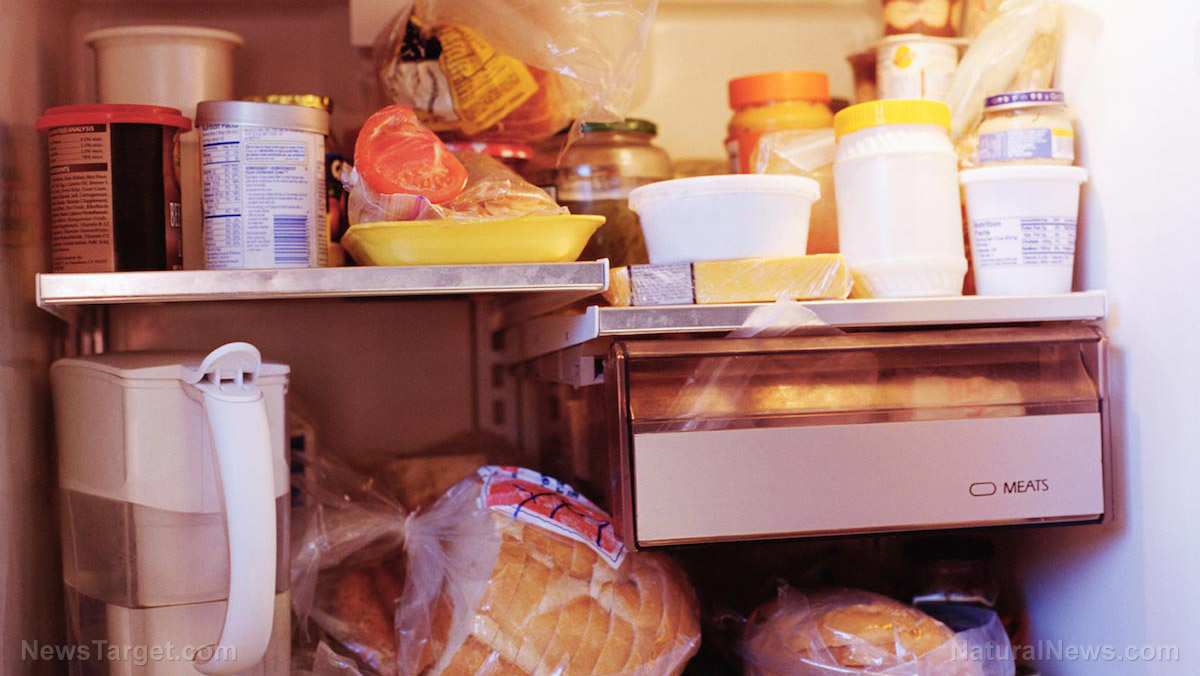Pick your poison: What toxic chemicals are lurking in your food packaging (and what you should use instead)
11/28/2019 / By Darnel Fernandez

When you’re in a rush and don’t have time to prepare your own food, takeout is a quick and easy solution. But are you aware that your to-go meal often comes with a side of toxic chemicals? Many types of food packaging in the US market contain harmful chemicals that can bring short- and long-term risks such as obesity, cardiovascular disease, cancer and other health issues. Because of this, many consumer advocates claim that phasing out these types of food packaging is long overdue. However, the question remains: What will replace them?
Hands off the to-go box
Despite the convenience of commercial food packages in terms of food storage and transportation, it is essential to find natural alternatives so you can enjoy your food without risking your health in the process. Below is a list of popular food packaging and what you can replace them with:
Takeaway containers
In recent years, food delivery applications like DoorDash and Postmates have made it much easier to bring food from the restaurant to your door. Recent surveys have shown that 51 percent of Americans use these delivery services to buy their meals and 26 percent order takeout at least once per week. However, with the rise of delivery services come an increasing amount of takeaway containers being used. According to the Environmental Working Group, toxic chemicals from the containers can seep into the food, exposing people to these toxins. (Related: Heat accelerates the release of toxic plastics chemicals from baby bottles, food packaging.)
The best alternatives to the standard takeaway containers are those that are compostable and fluorine-free. These are usually brown paper boxes marked with a seal that indicates they’re made from 100 percent recycled paperboard.

Coffee cups
The standard paper coffee cup may not seem too bad at first glance. Unfortunately, these cups are usually lined with plastic that keeps your coffee from leaking out. What this means is that tea and coffee drinkers alike are exposed to the plastic lining mixing with steaming hot liquids, which generally isn’t the safest thing. Exposure to heat can accelerate the release of toxic chemicals. The next time you roll up to your favorite coffee joint, make sure to bring your own cup or tumbler.
Aluminum cans
Even the ubiquitous aluminum can isn’t safe from toxic chemicals, as they are often lined with a plastic additive known as bisphenol A (BPA). BPA acts as an endocrine disruptor, which is linked to a myriad of health conditions such as infertility, breast cancer and prostate cancer. It is recommended to avoid using aluminum cans at all costs and, instead, purchase drink and food items stored in glass containers.
It is important to note that “BPA-free” products are not exactly safe, either. BPA has simply been replaced with other toxic chemicals like bisphenol-S or bisphenol-F, which can also disrupt the cells similar to BPA.
Plastic-wrapped produce
Many people think that fruits and vegetables covered in plastic wrap are cleaner and fresher because they are not exposed to any external elements. Unfortunately, the very packaging may introduce harmful chemicals that can infiltrate the food, making it less fresh and healthy.
Plastic wrappings contain phthalates, which are one of the most widespread endocrine disruptors. Because of this, it is much better to buy fruits and vegetables that are free from any packaging. A better alternative is to do your grocery shopping at your local farmer’s market to keep everything fresh and organic.
By finding alternatives to conventional food packaging, you can significantly reduce your exposure to harmful chemicals and lead a healthier life.
Sources include:
Submit a correction >>
Tagged Under:
This article may contain statements that reflect the opinion of the author





















